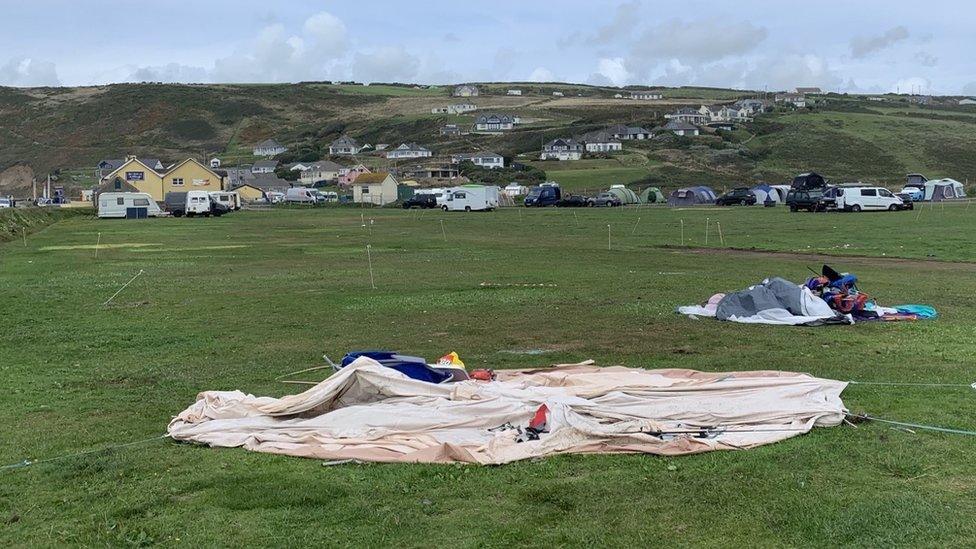Young drivers: New limits could save lives - officials
- Published
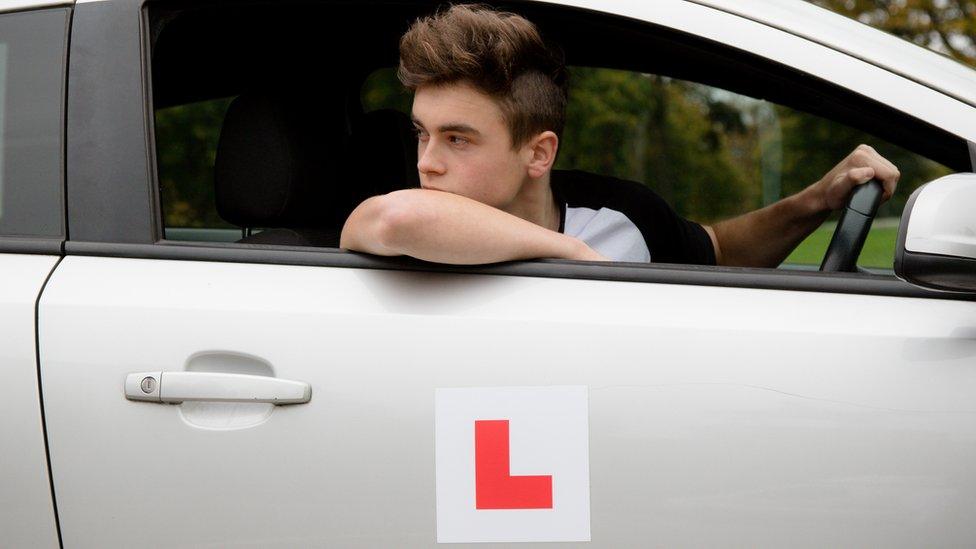
Drivers aged 17 to 24 are four times as likely to be killed or seriously injured as those over 25, data suggests
Restrictions on new drivers could help save lives, public health officials have said.
A graduated driving licence could see restrictions on young people, such as how many passengers they can have.
Road safety campaigners want a focus on cutting road deaths among young people, such as the recent high-profile fatal crashes in Wales. However, the cause in those is yet to be determined.
The UK government said there were no plans for graduated driving licences.
"We speak to a lot of bereaved families who say to us, had this been in place, our loved one would still be here," said Lucy Straker, from road safety charity Brake.
"We've seen a lot of high profile cases, in Wales and right across the country and we wouldn't see those kinds of things happening if his legislation had been in place."
The latest UK government figures from 2022 suggested a fifth of all fatal or serious injury crashes involved a young driver.
Drivers aged 17 to 24 were four times as likely to be killed or seriously injured as those over 25.
"Knowing they are at more risk, we are saying they need more safeguards," explained Ms Straker.
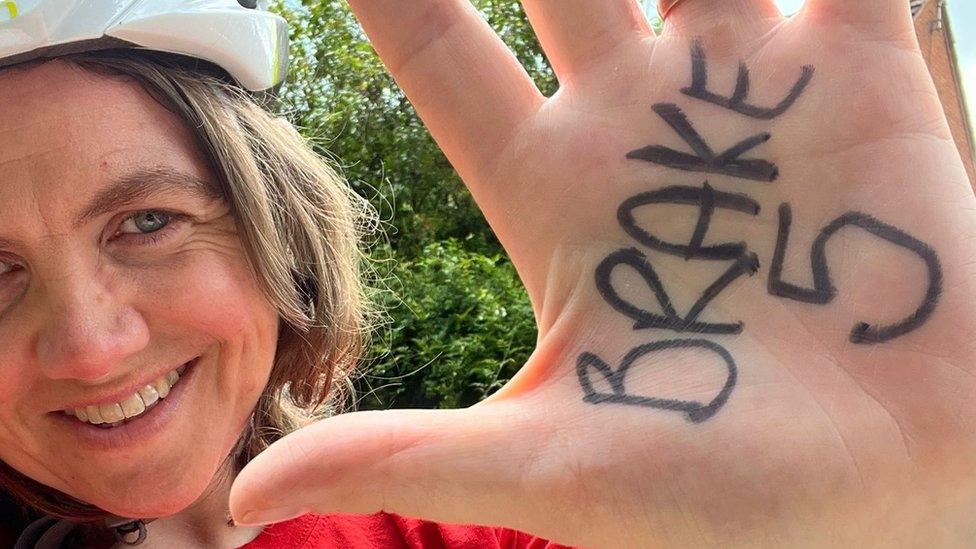
Younger drivers are at greater risk and require more safeguards, says Lucy Straker of road safety charity Brake
"Within a 17-25-year-old's brain development, they are much more likely to take risks without having the knowledge and experience in order to see the hazards that are being presented in front of them.
"A graduated driver's licence takes that into consideration."
Options for a graduated driving licence include a minimum learning period and restrictions on passenger numbers and driving at night.
Similar schemes have already been adopted in countries including the United States, Australia and Ireland.
New drivers in Ireland must also display a novice plate with the letter N for two years after passing their test.

Aswanth Palakunnel (R) pictured with his instructor, Abdul Hameed Shihabudin (L), passed his driving test on Wednesday morning.
Public Health Wales, in its submission to the Welsh government's road safety strategy consultation, also backed the inclusion of a drink-drive limit of 20mg per 100ml of blood, a quarter of the current limit of 80mg.
Aswanth Palakunnel, 23, from Llanedeyrn, Cardiff, who passed his driving test on Wednesday, said: "I think it's good because new driving restrictions for young drivers are often implemented with the goal of enhancing road safety and reducing accidents among less experienced drivers.
"While they may initially pose some challenges, they can contribute to building responsible driving habits and fostering safer road conditions for everyone," he said.
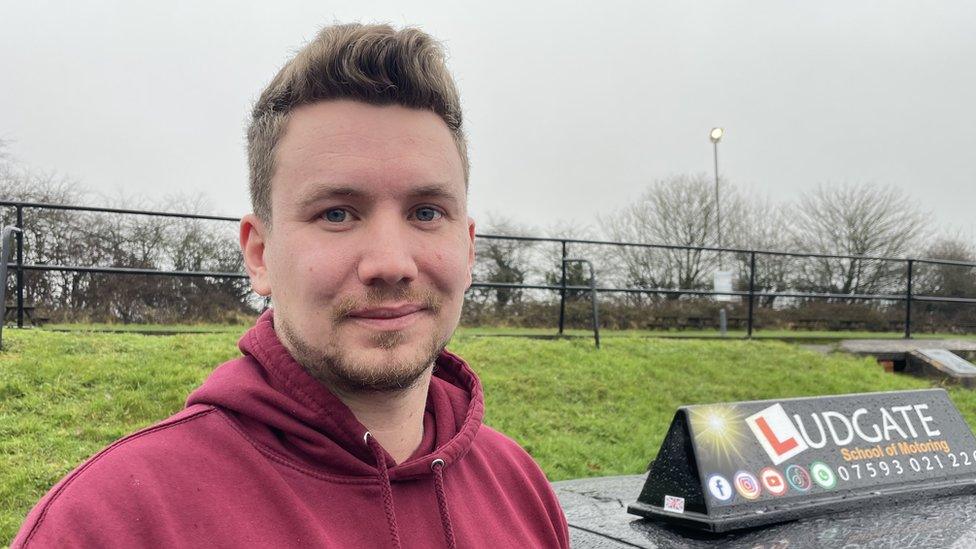
Ryan Ludgate said new drivers had a lot to think about
Ryan Ludgate, a driving instructor covering Carmarthen and Cardigan, said he believed there had to be a "balance".
"The first few times you go out on your own, it's terrifying," he said.
"You become so accustomed to sitting with your driving instructor or your mum and dad. So I always advise small trips to the shop, to work, somewhere you now.
"Then I always say the first time you go out with your mates is also a lot more daunting. Especially with the weight of the car."
The Welsh government is consulting on its new road safety strategy asking for views on how to improve road safer and said there was evidence that graduated driving licences "can help reduce casualties" among younger people.
However, it added, the issue was not one over which it had power and was a matter for the UK government.
The Department for Transport said: "While there are no plans to introduce graduated driving licences, we have commissioned research to better support new drivers and our THINK! campaign is specifically targeted at young drivers, who are more at risk on the roads."
Additional reporting by Renu Thapa


- Published13 November 2023
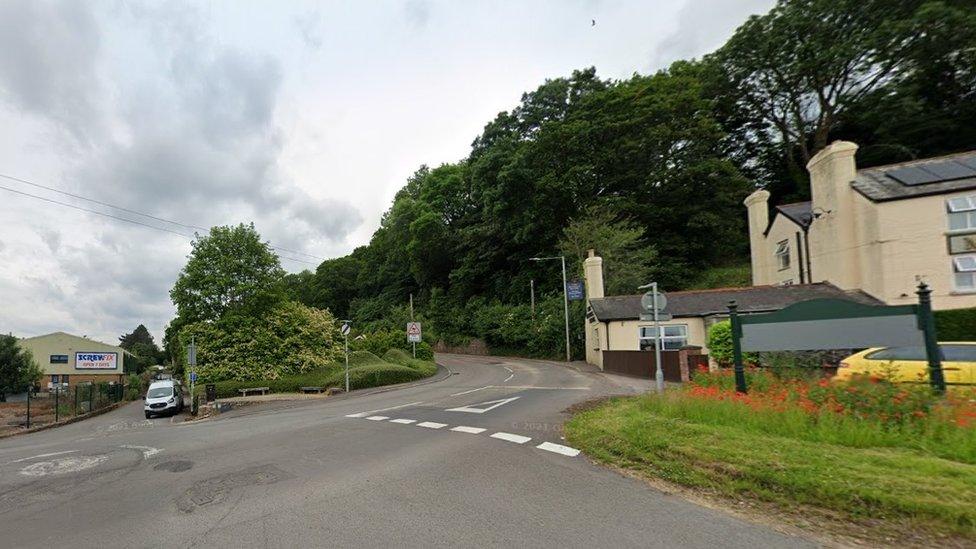
- Published6 September 2023
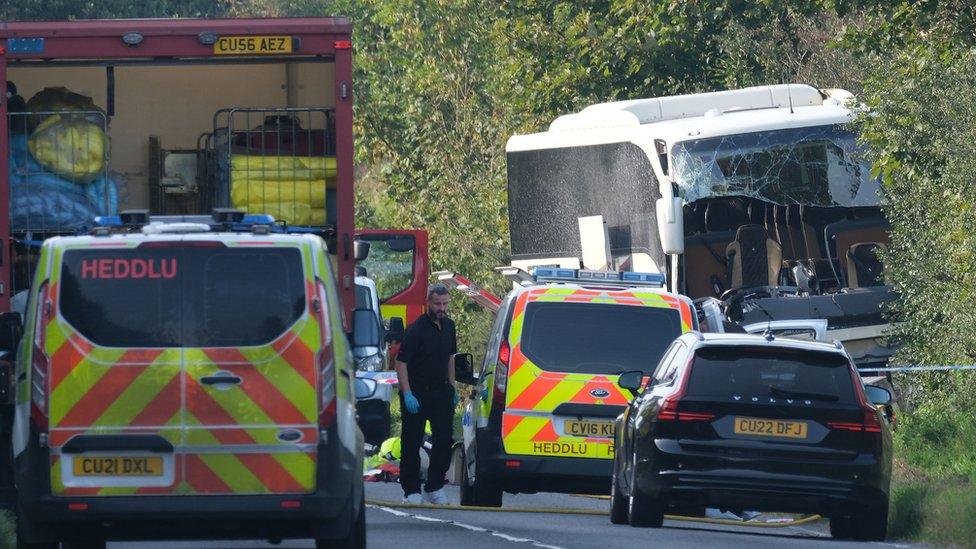
- Published6 June 2023
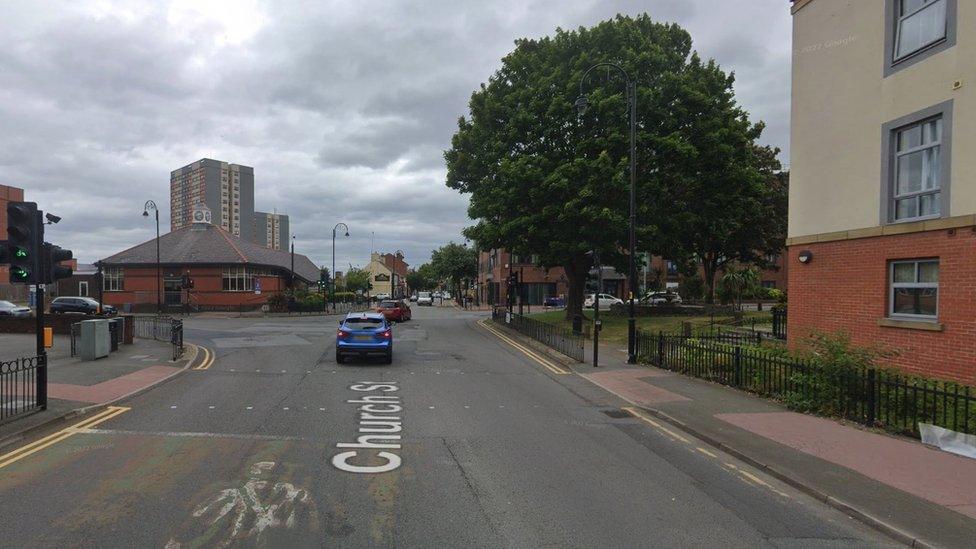
- Published14 August 2023
